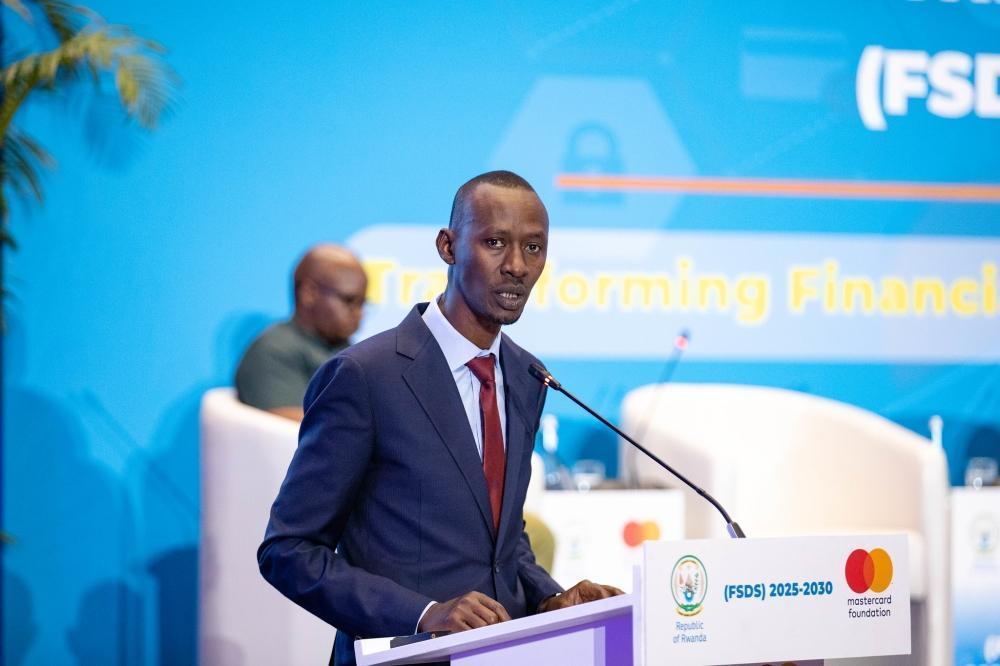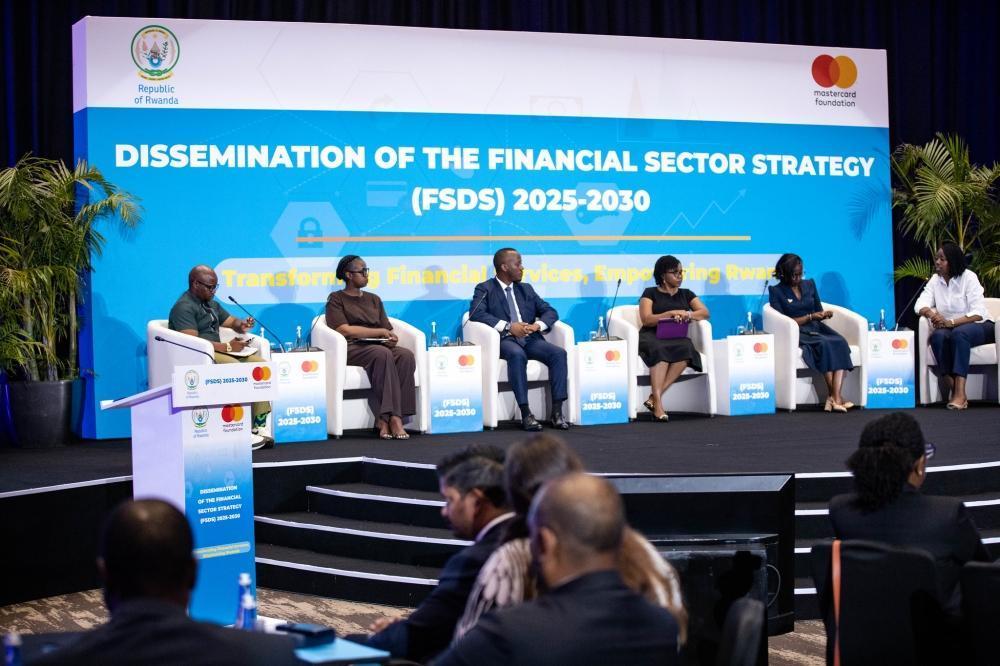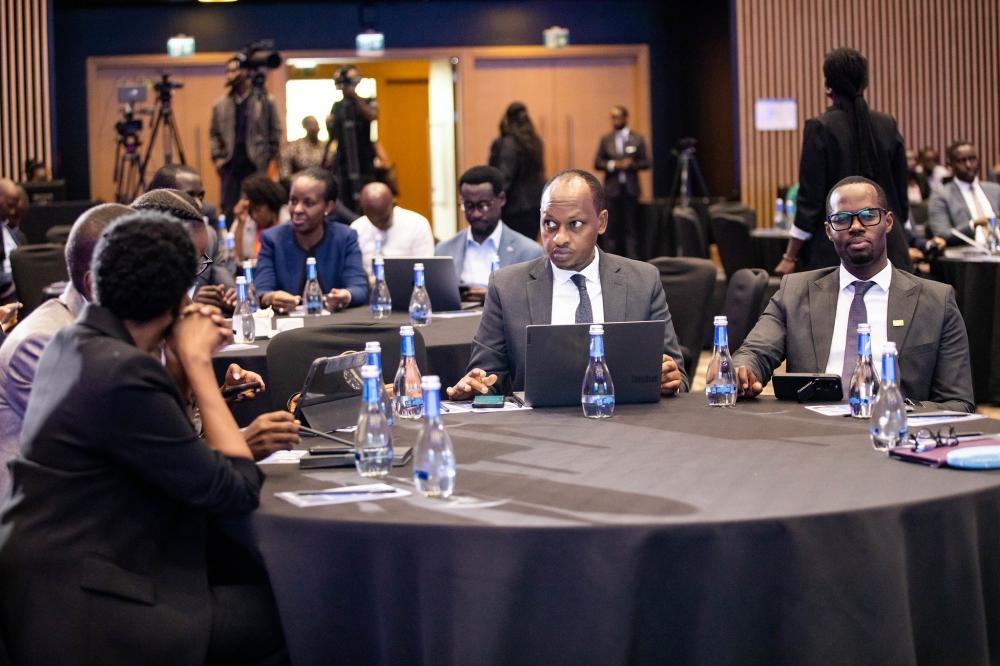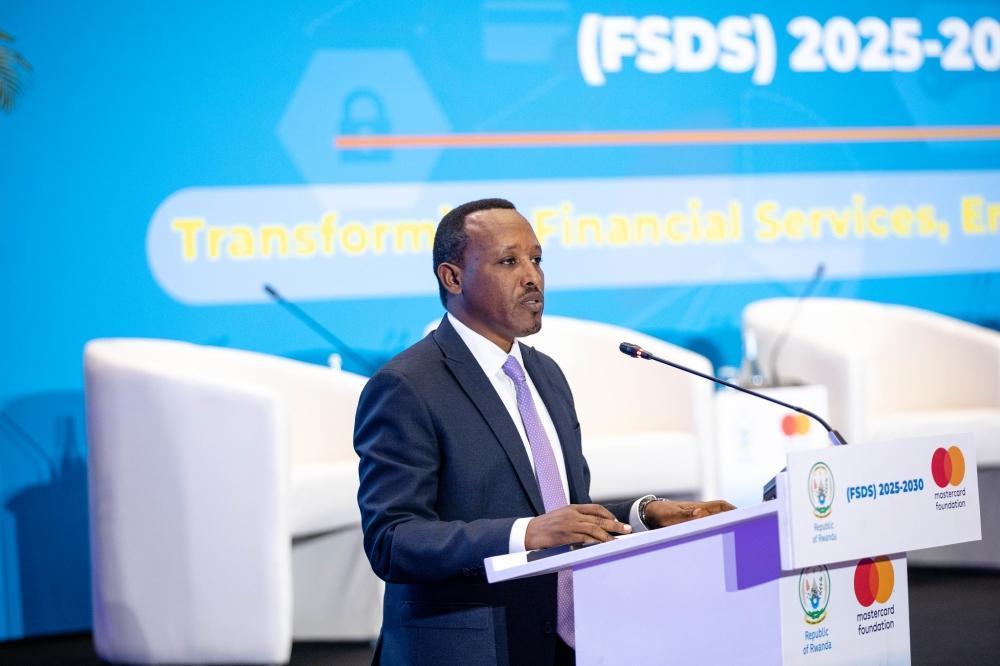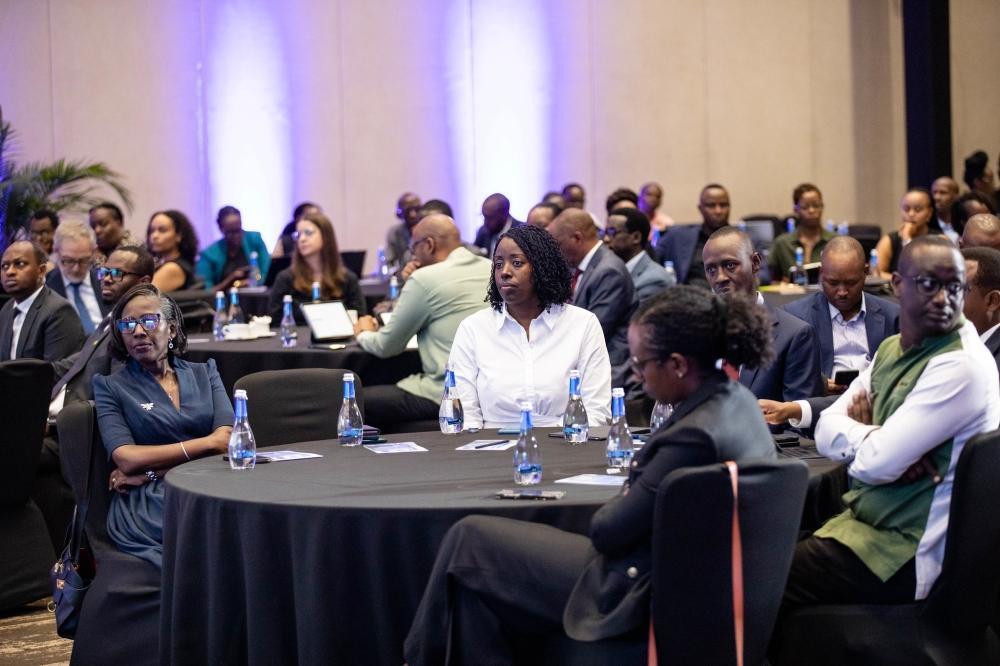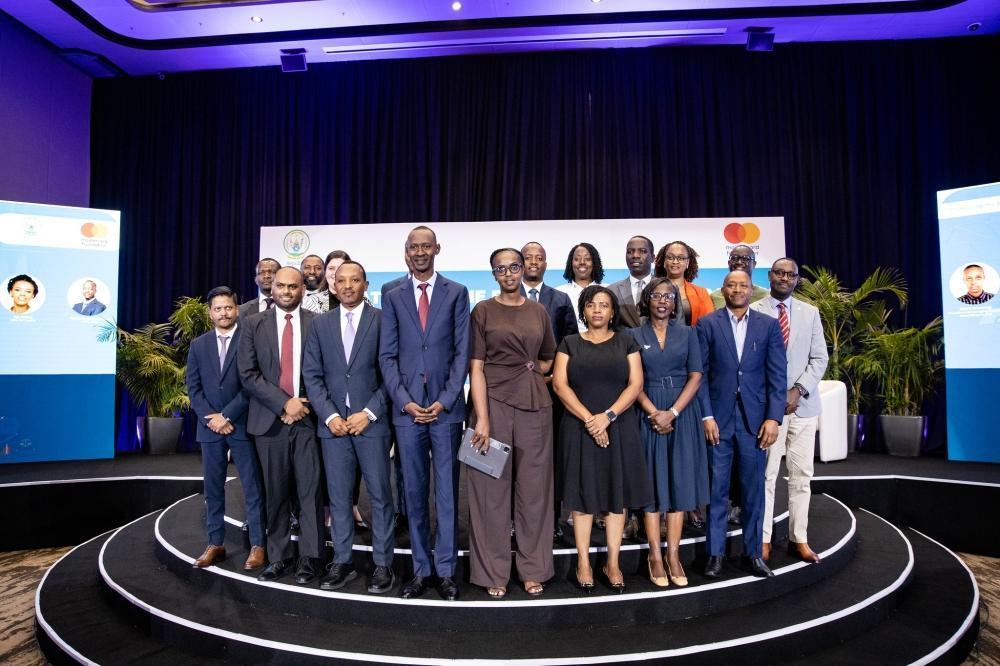Africa-Press – Rwanda. Rwanda’s financial technology (fintech) sector is projected to contribute around 4 per cent to the country’s gross domestic product (GDP) by 2029, up from less than 1 per cent in 2024, as part of the efforts to boost innovation and support a nascent start up ecosystem, officials have said.
The was announced on Thursday, October 16, during the official launch of the Financial Sector Development Strategy, a government five-year plan that aims to shape the country’s financial future.
Nick Barigye, Deputy Central Bank Governor delivers his remarks at the event in Kigali.
According to the new strategy, the country plans to introduce a Central Bank Digital Currency (CBDC), encourage data-driven lending, and open finance laws allowing banks and mobile operators to share client data securely.
It is expected that around 7,500 fintech jobs will be created.
Panelists engage in a discussion during the official launch of the Financial Sector Development Strategy on Thursday, October 16. Photo by Dan Gatsinzi
According to Jeanes Viljoen, payments expert at PwC, the new five-year plan positions the fintech sector as the next leap forward.
“Fintech is about connecting people, it is empowering infrastructure and innovation and it is really driving the nation’s ambition to become a fully digital inclusive economy,” she told top financial players at the launch.
Viljoen maintained that while cash remains common in Rwanda, progress has been made in the payments sector allowing for a financially inclusive economy, pointing to platforms like the Mobile Money payment systems, e-cash, citing their contribution everyday transactions.
However, she decried, the challenge has been trust and low access.
“That is not only a challenge in Rwanda, it’s a challenge in other countries both in Africa and across the world, and it’s now important that we see this as an opportunity.”
“The systems have laid the foundation for a digital economy it works for everyone from your urban commercial entrepreneurs to the rural farmers. The next step now is to deepen and diversify this. We need to go beyond payments, we go into credit, we go into savings, we go into capital markets, and into investment products.”
‘Interoperability key’
Viljoen observed that both domestic and cross-border transfers are financial lifelines for many Rwandans. However, she said, the costs associated with these transactions are extremely high.
“So, by digitizing the transactions, especially the remittance corridors, we can promote regional integration,” she noted, arguing that regional interoperability encourages new entrants, allowing for an increase in supply and an eventual drop in transaction costs.
This, she added, will make it cheaper, faster, and safer for many people to transact.
Currently, only about 46 per cent of Rwandans use financial products beyond payments, with officials mulling connecting fintechs to broader financial products.
Herbert Asiimwe, Head of Financial Sector Development addresses the conference on Thursday. October 16. Photo by Dan Gatsinzi
Herbert Asiimwe, Head of Financial Sector Development at the Ministry of Finance and Economic Planning, maintained that it was critical to improve the uptake of formal financial services.
As it stands, he said, the majority of the Rwandan population still rely on informal options, putting them at “even more risk”.
He reiterated persistent challenges of high intermediation costs within fintech and payment systems, calling for greater efficiency and cost reduction. “The cost of intermediation remains high. It’s crucial for us to address this if we are to create a more inclusive and competitive sector.”
Under the five-year strategy, the country plans to increase its financial sector’s GDP share from about 2 per cent in 2024 to 4 per cent by 2029, and 12 per cent by 2050.
Conducive environment
A key pillar of the strategy is the regulatory sandbox, which allows fintech companies to test new products and services in a controlled environment under regulatory supervision.
The sandbox, developed and managed by the Central Bank, is designed to promote innovation while protecting consumers.
At least 17 fintech firms have already been admitted into the sandbox since its launch in 2022.
Fintech firms are required to demonstrate innovation, readiness for live testing, and risk mitigation strategies as part of the application process.
Rwanda is one of 16 African countries with regulatory sandboxes.
Once testing is complete, successful solutions can move to full commercial deployment.
The official launch of the Financial Sector Development Strategy took place on Thursday, October 16. Photo by Dan Gatsinzi
Officials pose for a group photo at the official launch of the Financial Sector Development Strategy on Thursday, October 16. Photo by Dan Gatsinzi
For More News And Analysis About Rwanda Follow Africa-Press


